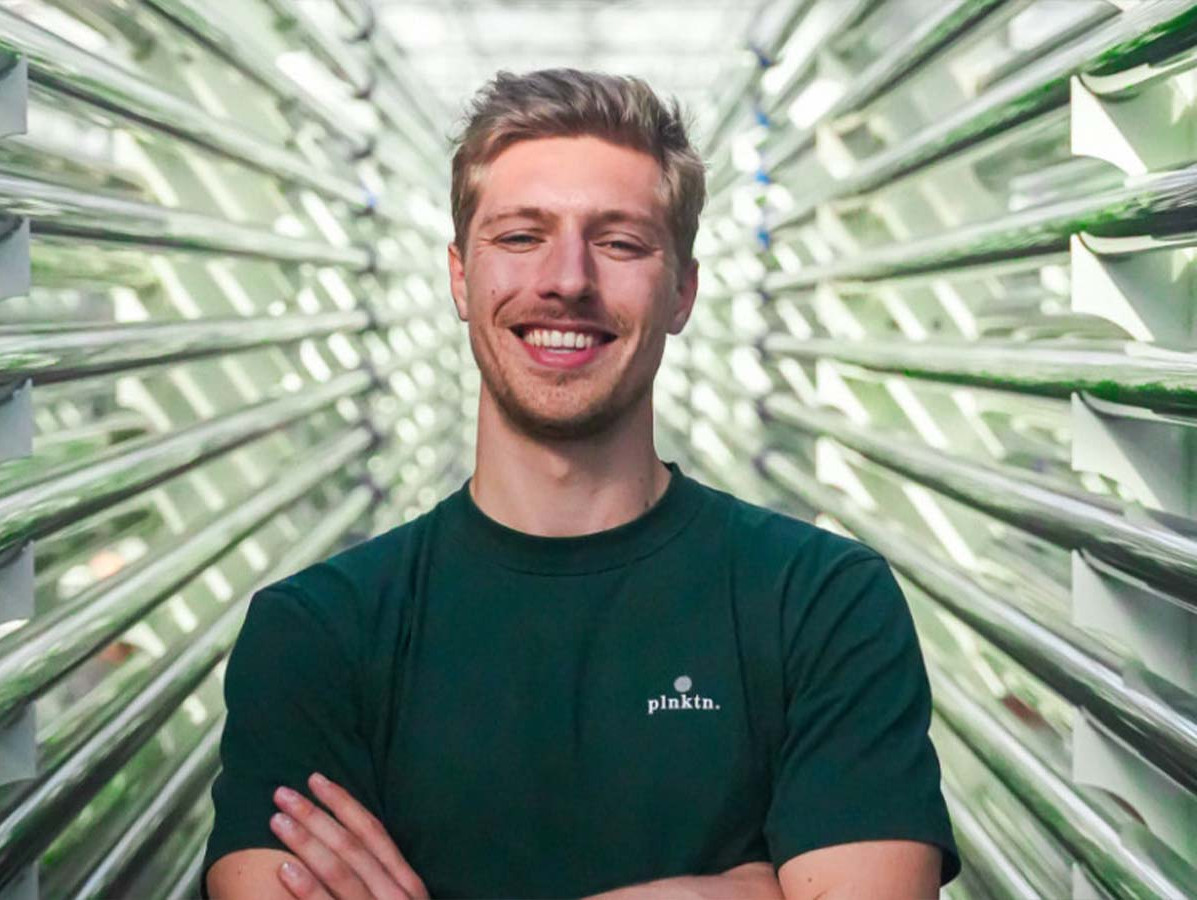
The food industry is increasingly paying attention to plankton as an ingredient, though few companies have ventured into this space. One pioneer in this area is the supplement producer PLNKTN.
After Thom Siersema’s stepfather, Jan, suffered a heart attack on top of his macular degeneration, he decided to change his lifestyle. He sought products rich in omega-3 fatty acids for heart health, as well as pigments and minerals beneficial for the eyes. This led Jan to microplankton, a type of algae. His new lifestyle made him feel significantly better, inspiring Thom to found PLNKTN alongside Gijs Dröge. Thom and Gijs share the belief that everyone should consume plankton daily.
“Plankton is incredibly nutrient-dense. Even in small amounts, it provides a lot of nutrients, many of which are typically found in animal products. It’s packed with healthy omega-3 fats, minerals, B vitamins, antioxidants, and is very protein-rich. Additionally, plankton can be cultivated in a highly sustainable manner, using minimal water, since most of it can be recycled.”
“Algae are grown in a large network of tubes where water flows through. It’s a photosynthesis process using sunlight or artificial light, with CO2 being absorbed to create a nutrient-rich biomass. It starts with an algae strain from the ocean. You allow it to multiply in a small medium, like a test tube. Once you have enough volume, it goes into an algae cultivation machine, then moves to larger machines. Eventually, you get an edible biomass. We dry this biomass and process it into different products, such as capsules and powder.”
“We certainly do! Supplying ingredients to the food sector could be a great next step. For now, however, we are focusing on supplements for two reasons. First, using it in larger quantities as an ingredient could lead to excessive intake of certain nutrients, such as iodine or iron, due to its high nutritional value. Second, plankton has a very intense flavor. People aren’t used to it yet—it doesn’t quite fit into the general flavor profile.”
“It’s all about a clear choice for supplements from a single source. Typically, vitamins and minerals are artificially extracted and made into supplements in very high concentrations. A multivitamin contains 100% of everything you need. This can lead to overconsumption, and it’s questionable whether the body can fully absorb these nutrients. Our supplements don’t fit that definition. They’re more of a health-boosting product to add some extra variety to your diet.”
“The fact that we currently produce supplements doesn’t mean algae aren’t suitable as ingredients! We already supply to several restaurants that embrace the strong flavor. For instance, the Michelin-starred restaurant Rijks has cooked with our algae, and one of the top restaurants in the Benelux, The Jane, used our algae in a cocktail. We don’t have concrete plans to enter that market yet, but it’s definitely a direction we want to explore. If a company with interest approaches us, things could move quickly. That said, the producer must align with our core values in terms of quality, transparency, and sustainability. We’re also not fond of highly processed meat substitutes or products with too many ingredients. Ideally, we’d like to create a product that celebrates the unique flavor. Our target audience is currently the conscious consumer, but we ultimately want to reach everyone.”
“By gradually reaching out to new audiences. That’s why we’re currently focusing on a market segment that more readily embraces our products. There’s opportunity particularly with consumers who care about what their food does for their bodies and who are mindful of their food’s environmental impact. Besides unfamiliarity with the product, price is another limiting factor. Algae cultivation is a time-intensive process, making it expensive, though there’s room for cost reductions as we scale up. There aren’t that many algae growers yet. We’ve built a network of algae producers and are working hard to expand and optimize it.”
This article previously appeared on Foodbusiness.nl
Source: Vakblad Voedingsindustrie 2024